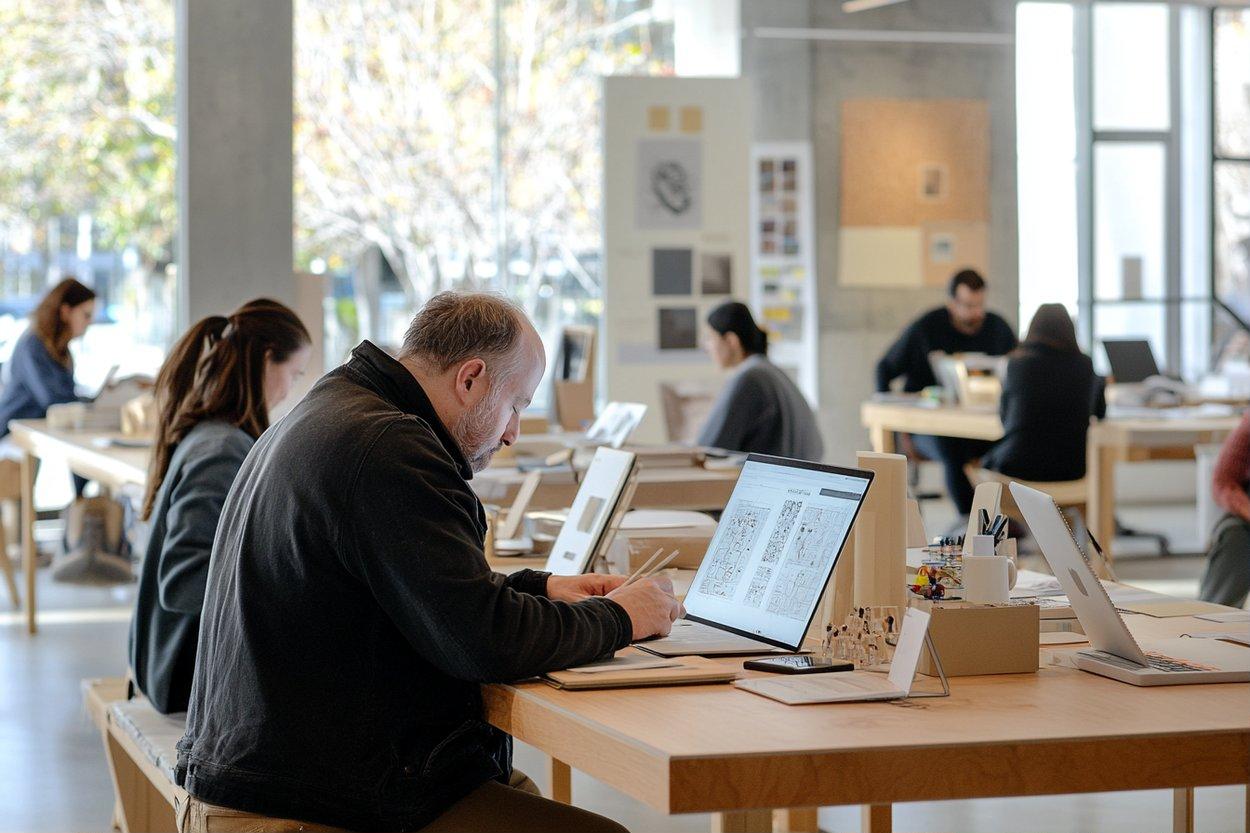How Coworking Spaces in the UK Boost Creativity and Collaboration
Coworking spaces in the United Kingdom are more than just shared desks — they’re creative environments where people connect, ideas flow, and work becomes more meaningful. Whether you're a freelancer, entrepreneur, or remote employee, a well-designed coworking space can enhance your focus and motivation. Start by exploring how the right setup and community can transform your daily routine.

What Makes Coworking Environments Different from Traditional Offices?
The fundamental distinction between coworking spaces and conventional offices lies in their intentional design for interaction and flexibility. Unlike traditional corporate environments with rigid hierarchies and departmental silos, coworking spaces encourage cross-pollination of ideas between diverse professionals. The open-plan layouts, communal areas, and shared resources create natural opportunities for conversations that can spark innovative solutions.
The physical design of these spaces often incorporates elements that stimulate creativity—from natural lighting and plants to flexible furniture arrangements that can adapt to different working styles throughout the day. Many UK coworking spaces feature dedicated quiet zones for focused work alongside collaborative areas for team projects, allowing professionals to choose the environment that best suits their current task.
How Does Community Building Enhance Professional Growth?
Real connections form the backbone of successful coworking spaces, creating a like-minded community that extends far beyond casual networking. Members often find themselves collaborating on projects, sharing expertise, and forming partnerships that wouldn’t have emerged in isolated work environments. This sense of community combats the loneliness that many freelancers and remote workers experience whilst providing accountability partners who can motivate productivity.
Regular events, workshops, and social gatherings organised by coworking spaces facilitate deeper connections between members. These interactions often lead to knowledge transfer, skill sharing, and collaborative projects that benefit everyone involved. The diversity of professionals—from tech startups to creative freelancers—creates a rich environment where different perspectives can challenge conventional thinking and inspire innovative approaches.
What Environmental Factors Contribute to Enhanced Focus?
The environment that fuels productivity and focus in coworking spaces stems from careful attention to both physical and psychological elements. Proper lighting, ergonomic furniture, reliable technology infrastructure, and thoughtfully designed acoustics all contribute to creating conditions where deep work can flourish. Many UK coworking spaces invest in high-quality amenities that individual freelancers or small businesses might not afford independently.
The psychological aspect is equally important—being surrounded by other motivated professionals creates an atmosphere of productive energy that can be contagious. The gentle buzz of activity, combined with the visual cues of others engaged in meaningful work, often enhances focus more effectively than the silence of a home office or the distractions of a coffee shop.
Which Collaborative Features Drive Innovation Forward?
Modern coworking spaces incorporate specific features designed to facilitate collaboration and innovation. Whiteboard walls, moveable partitions, video conferencing facilities, and presentation spaces enable spontaneous brainstorming sessions and formal team meetings alike. These tools, combined with the diverse skill sets of community members, create an environment where problems can be approached from multiple angles.
Many spaces also offer specialised areas such as maker spaces with 3D printers, podcast recording studios, or photography equipment that members can access as needed. These shared resources not only reduce individual costs but also encourage experimentation and creative exploration that might not otherwise occur.
Why Do UK Coworking Spaces Excel at Supporting Business Development?
British coworking spaces have developed particular strengths in supporting business growth through their emphasis on professional development and mentorship opportunities. Many locations host regular pitch events, business clinics, and industry-specific meetups that provide valuable learning experiences and potential client connections. The supportive community atmosphere encourages risk-taking and entrepreneurial thinking whilst providing a safety net of experienced professionals who can offer guidance.
Regional variations across the UK also provide unique advantages—London spaces often focus on fintech and international business connections, whilst Manchester and Leeds emphasise digital innovation, and Edinburgh spaces frequently support creative industries and sustainable business practices. This specialisation allows professionals to find communities aligned with their specific industry needs and growth objectives.
What Should You Expect from Flexible Coworking Arrangements?
Flexible setup and steady growth characterise the modern coworking experience, with most UK providers offering various membership tiers to accommodate different needs and budgets. Hot-desking options provide maximum flexibility for occasional users, whilst dedicated desks offer consistency for those requiring regular workspace. Private offices within coworking environments combine the benefits of community access with the privacy needed for confidential work or team meetings.
| Membership Type | Typical Monthly Cost | Key Features |
|---|---|---|
| Hot Desk Access | £80-150 | Flexible seating, basic amenities, community events |
| Dedicated Desk | £200-350 | Personal workspace, storage, 24/7 access |
| Private Office | £400-800+ | Enclosed space, team capacity, meeting room access |
Prices, rates, or cost estimates mentioned in this article are based on the latest available information but may change over time. Independent research is advised before making financial decisions.
Most coworking spaces operate on rolling monthly contracts, allowing professionals to scale their workspace needs up or down based on business requirements. This flexibility proves particularly valuable for growing businesses that need to adjust their space allocation as team sizes change or project demands fluctuate.
Conclusion
The success of coworking spaces in boosting creativity and collaboration stems from their unique ability to combine the flexibility of remote work with the energy and connections of a shared professional community. By thoughtfully designing environments that support both focused individual work and dynamic group collaboration, these spaces have created a new model for professional productivity that continues to evolve with the changing needs of the modern workforce.




